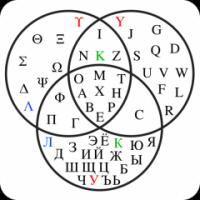Pesan: 34
Bahasa: English
tommjames (Tunjukkan profil) 15 Oktober 2012 18.49.22
Hundies19:I tend to leave out the copula for brevity since most people assume the present tense when it's omitted.My advice would be to stop doing that, assuming you wish to speak actual Esperanto.
Hundies19 (Tunjukkan profil) 15 Oktober 2012 18.51.08
tommjames:LOL. Alright.Hundies19:I tend to leave out the copula for brevity since most people assume the present tense when it's omitted.My advice would be to stop doing that, assuming you wish to speak actual Esperanto.
erinja (Tunjukkan profil) 16 Oktober 2012 00.21.02
Hundies19:Yeah, I agree with Tommjames.tommjames:LOL. Alright.Hundies19:I tend to leave out the copula for brevity since most people assume the present tense when it's omitted.My advice would be to stop doing that, assuming you wish to speak actual Esperanto.
I think I saw you do it in the Esperanto forums (leave out the verb) and I assumed you did it because you were a beginner and didn't know better. I never would have guessed that it was a conscious choice.
sudanglo (Tunjukkan profil) 16 Oktober 2012 09.54.56
Aha, tiel! Nu, bone! Vi estas adoptinta dum la domkonstruo vian inventon?
la rapida ekonomia evoluo estas produktinta, dum malmultaj jaroj, politikan nestabilon kaj korupton
In the first example the period (the construction of the house) is most likely completed. In the second example the period (a few years) might be completed but the more generous interpretation is the few years upto now.
It seems to me that 'I have been studying Esperanto for one week' must refer to the week upto now.
I am uncertain as to whether in mi estas studinta Esperanton dum semajno the week in question might be a past week or the week upto now.
However I am inclined to the view that if the week was a past week, then an Esperantist would say 'mi studis' and that the most likely interpretation of 'estas studinta dum semajno' would be the week upto now, and that therefore this is a valid translation of the English sentence in question.
Hundies19 (Tunjukkan profil) 16 Oktober 2012 13.20.10
tommjames (Tunjukkan profil) 16 Oktober 2012 13.42.25
Hundies19:Would the phrase "Mi studintas Esperanton dum semajnon antaŭ ol nun" work?dum semajno (without -n)
And bear in mind the contracted participle form "X-intas" is pretty uncommon.
But really, these kind of complex phrases with participles and time words are simply not necessary. To say you study Esperanto, say "Mi studas Esperanton". To add that your studying has been going on for a week, "de semajno" is perfectly sufficient. Why complicate things?
matrix (Tunjukkan profil) 16 Oktober 2012 17.19.46
tommjames:To add that your studying has been going on for a week, "de semajno" is perfectly sufficient. Why complicate things?In Esperanto:
- “a week” is said “semajno”: the indefinite article a is not mentioned in Esperanto although the case does exist.
- “one week” is said “unu semajno”: the numeral one is mentioned in Esperanto.
So, “de semajno” is understandable, but not correct: you need to say “de unu semajno”.
Further, if you want to stress the notion of duration, you can use the preposition post after de: de post.
“Mi studas Esperanton de (post) unu semajno.” is a good translation of this sentence.
I maintain that it is needed to mention the numeral unu in Esperanto.
tommjames (Tunjukkan profil) 16 Oktober 2012 18.35.20
matrix:I maintain that it is needed to mention the numeral unu in Esperanto.Sorry but that's obviously not correct. It is quite common not to use an explicit "unu" before measuring words.
As for "de post", I don't really see how that's at all useful in a phrase like this. There is no need to stress duration when using a word like "semajno", which is itself a duration.
Each to their own though. I prefer to keep things simple, and I see that as more in the Esperanto tradition.
sudanglo (Tunjukkan profil) 16 Oktober 2012 19.58.58
If you search the Tekstaro you will see how depost or de post is normally used in Esperanto.
It is customarily followed (in its temporal sense) with an expression identifying a point in time.
De post 1992 mi estas ano de la Akademio de Esperanto
ŝi ne dormis de post lia reveno
If you do see a period expression after de post then the reference is to the time following the end of the period. eg de post la dua mondmilito.
The following is an interesting example where the reference is to a future time.
Tio ĉi ŝajnas eĥi la Majstron, kiu (simile) parolis pri granda diferenco inter la nuna Esperanto kaj tiu de post multaj jarcentoj
matrix (Tunjukkan profil) 16 Oktober 2012 22.21.39
sudanglo:Matrix, de post or depost is not an exact equivalent to the French 'depuis', though sometimes it can be translated into French as 'depuis'.If we get back to the basics, vi pravas.
If you search the Tekstaro you will see how depost or de post is normally used in Esperanto.
It is customarily followed (in its temporal sense) with an expression identifying a point in time.
I make the difference between ekde, de post and de.
However, I often met de post in the meaning of de: in this way, post might be seen as a kind of intensifier.
It is a discussed question in Esperantujo as you can see in ReVo.
But, sensu stricto, it may seem a little abusive indeed.





